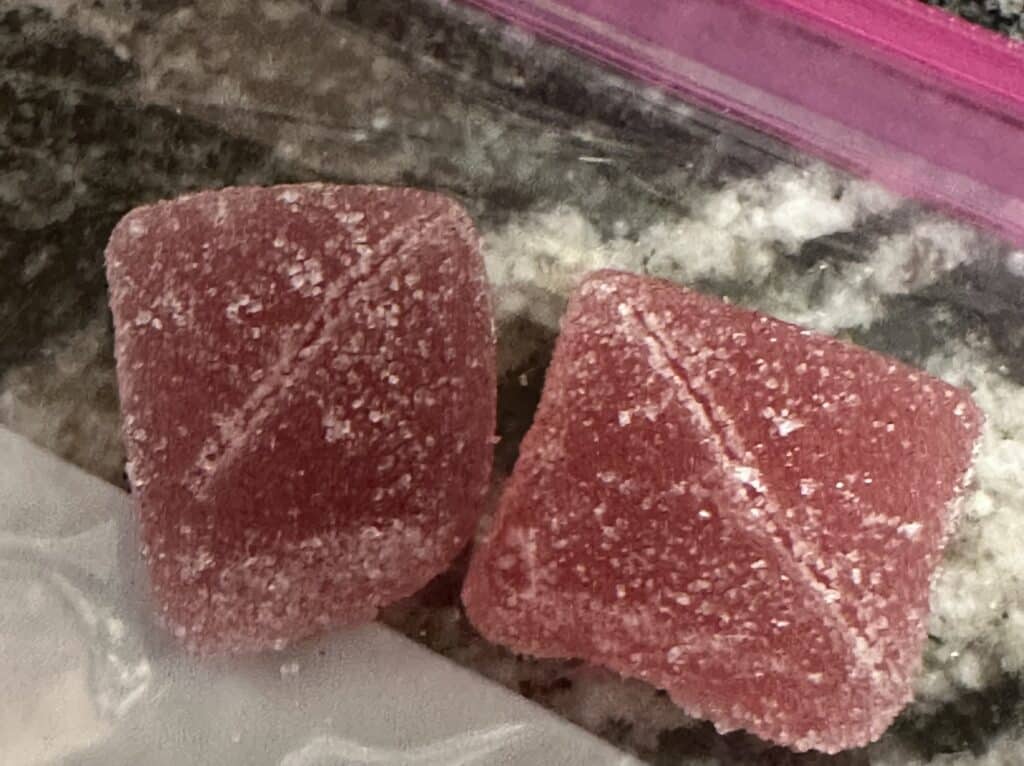Michael & Associates has a 100% success rate in Houston drug cases in 2025, as measured by our client satisfaction surveys. Our ultimate goal is for every client to walk away without lifelong consequences from a one-time mistake.
Suppose you’re facing charges for drug possession in Harris County or the surrounding areas. In that case, you need experienced advocates who understand how prosecutors think, how local courts operate, and who know the key players. That’s our team at Michael & Associates.
Our Houston attorneys have taken the time to build trust and rapport with local judges, prosecutors, and juries. One began as a prosecutor in Galveston, while the other is a former public defender. These diverse experiences enable us to view your case from multiple angles.
We’ve built a reputation in Southeast Texas for thorough investigations, aggressive negotiation, and unwavering support. Our local experience gives us a critical edge.
When you hire Michael & Associates to defend you against Houston drug allegations, you don’t just get one lawyer — you get the full force of our entire Texas team, which includes a former FBI agent, a former judge, and attorneys with decades of criminal defense experience. Together, we customize a defense based on your situation, working relentlessly toward the best possible outcome. Our number one goal is a dismissal.
We represent clients in Harris County, Fort Bend, Montgomery, Galveston, Brazoria, Waller, and Liberty counties. Not sure how to get started? Contact us for a free consultation today.
Houston Drug Possession Laws
The most common drug-related charges in the Houston area include marijuana possession and possession of controlled substances without a valid prescription.
Marijuana Possession
Despite national trends, marijuana remains illegal under Texas law, including cannabis edibles, vape cartridges, tinctures, and oils.
Harris County has implemented a diversion program that allows those who are eligible to avoid arrest and prosecution if a cop busts you for carrying less than four ounces of weed. We will examine whether you’re eligible. Once you complete it, no charges will be filed, and you won’t have a criminal record.

However, an oil, gummy, beverage, or tincture can push you over that four-ounce limit. Our exclusive investigation found that a single edible can weigh five grams or more, which could result in a state jail felony charge, carrying a sentence of six months to two years in jail.
Additionally, the sale of low-potency hemp-derived THC products (like Delta-9 edibles) is technically legal. Still, there’s no field test to confirm the potency, meaning you could be arrested even if you purchased the items in your possession legally.
According to court data, 80% of marijuana possession cases in Harris County in 2024 were resolved—75% were dismissed, 12% were convicted, and 11% received deferred adjudication. The remaining 2% of cases had other outcomes.
Controlled Substances
Under the Texas Health & Safety Code Sections 481.115 to 481.118, knowingly possessing a controlled substance without a valid prescription is illegal. Texas groups these substances by risk and medical use.
Penalties will vary based on the type and quantity of the drug. A conviction could result in jail time, substantial fines, and a permanent criminal record. Unlike other states, Texas takes a hardline approach — being caught with just a few pills can trigger serious legal consequences.
Court data shows that 5072 people were charged with drug possession in Harris County in 2024. About 68% of those cases have been resolved—35% were convicted, 34% were dismissed, 14% got deferred adjudication, and the remaining 17% had other outcomes.
Other Drug Crimes in Texas
Michael & Associates is equipped to defend against all types of drug charges in Texas, including:
- Manufacture or Delivery of a Substance in Penalty Group 1: Texas Health & Safety § 481.112
- Manufacture or Delivery of a Substance in Penalty Group 1A: § 481.1121
- Manufacture of a Substance in Penalty Group 1 in the Presence of Child: § 481.1122
- Manufacture or Delivery of a Substance in Penalty Groups 2 or 2A: § 481.113
- Manufacture or Delivery of a Substance in Penalty Groups 3 or 4: § 481.114
- Manufacture, Delivery, or Possession of Miscellaneous Substances: § 481.119
- Marijuana Delivery: § 481.120
- Delivery of Marijuana or Another Controlled Substance to a Child: § 481.122
- Possession or Transport of Certain Chemicals with the Intent to Manufacture a Controlled Substance: § 481.124
- Drug Paraphernalia Delivery: § 481.125
- Transfer of a Precursor Substance for Unlawful Manufacture: § 481.137
- Manufacture or Delivery of a Controlled Substance That Causes Death or Serious Bodily Injury: § 481.141
READ MORE: Texas drug laws
Texas Drug Penalty Groups and Consequences
The Texas Controlled Substances Act divides drugs into categories based on risk and use:
Here are the classifications:
| Schedule | Examples | Potential charges (based on volume) |
| Group 1: No acceptable medical use; high potential for abuse (§481.102) | Codeine Cocaine Ecstasy Heroin Opium Oxycodone Meth | State jail felony to first-degree felony |
| Group 1A | LSD and other hallucinogens | State jail felony to first-degree felony |
| Group 1B | Fentanyl and derivatives | State jail felony to first-degree felony |
| Group 2: These have some accepted medical uses but a high potential for abuse (§481.103) | PCP Hashish Psilocin Mescaline | State jail felony to second-degree felony |
| Group 2A | Synthetic cannabinoids such as K2 and Spice | Class B misdemeanor to second-degree felony |
| Group 3: Accepted medical uses with lower potential for abuse (§481.104) | Valium Xanax Ketamine Ritalin Opiates not listed in Group 1 | Class A misdemeanor to second-degree felony |
| Group 4: (§481.105) | All opiates and opioids not listed in the other groups and other prescription drugs | Class B misdemeanor to second-degree felony |
Source: Texas Health and Safety Code Chapter 481
Potential Penalties
- First-degree felony: 5–99 years (or life) in prison, up to $250,000 fine
- Second-degree felony: 2–20 years, up to $10,000 fine
- Third-degree felony: 2–10 years, up to $10,000 fine
- State jail felony: 180 days–2 years, up to $10,000 fine
- Class A misdemeanor: Up to 1 year in jail, $4,000 fine
- Class B misdemeanor: Up to 180 days in jail, $2,000 fine
- Class C misdemeanor: Fine up to $500
Legal Defenses to Drug Charges
As your Houston drug crimes lawyer, we begin every case by asking the right questions:
- Was there probable cause for the stop or search?
- Were your constitutional rights violated?
- Was the substance in your possession or someone else’s?
- Do you have a valid prescription?
Common defense strategies include:
- Challenging unlawful stops or searches
- Proving a lack of possession or knowledge
- Producing medical documentation or prescriptions
- Negotiating pretrial diversion or reduced charges
We Understand What’s at Stake
At Michael & Associates, we know that a drug conviction can derail your future, affecting everything from employment and housing to education and immigration status.
We believe that one mistake shouldn’t impact the rest of your life. Our focus is on compassionate representation designed to protect your future, whether this is done by securing a dismissal, negotiating a plea deal, fighting for your enrollment in a pretrial diversion program, or fighting for you in court.
Real Case. Real Results.
One of our recent victories involved a college student caught with a small amount of marijuana.
Our client, an honor roll student, risked a permanent record and lost opportunities. We negotiated directly with prosecutors and secured a pre-file dismissal. There will be no jail time, no conviction, no record—as long as the client remains law-abiding, the charge will not return.
That’s the outcome we fight for in every case.
Drug Counseling Resources in Houston
If you’re struggling with addiction, you’re not alone. These trusted Houston-area organizations offer treatment and support:
The Council on Recovery
303 Jackson Hill St, Houston, TX 77007
(713) 942-4100; https://www.councilonrecovery.org/
Santa Maria Hostel
2605 Parker Rd, Houston, TX 77093
(713) 691-0900; https://www.santamariahostel.org/
Into Action Recovery Centers
17250 El Camino Real, Houston, TX 77058
(844) 694-3576; https://www.intoactionrecovery.com/
The Right Step Houston
12350 Wood Bayou Dr, Houston, TX 77013
(844) 768-0169; https://www.rightstep.com/locations/houston-drug-rehab/
Texas Health and Human Services
Search for licensed addiction providers in the Houston area: https://www.hhs.texas.gov
Frequently Asked Questions about Drug Crimes in Houston
More Houston Area Resources
How to get someone out of jail in Harris County
Harris County Jail visitation: How to visit an inmate
Harris County warrant search: How to see if you have one
Harris County booking: What happens after you’re arrested?
Data: How much is bail in Harris County?

Charles Pelowski is a Senior Trial Attorney at Michael & Associates. Charles’s extensive trial skills and strategic insights make him a formidable advocate for those accused of a crime in the Greater Houston area. He has a proven record in handling criminal cases across the state, from minor infractions to high-profile murder cases. His approach to defense is marked by creativity, a deep commitment to the jury trial system, and an unwavering pursuit of justice.